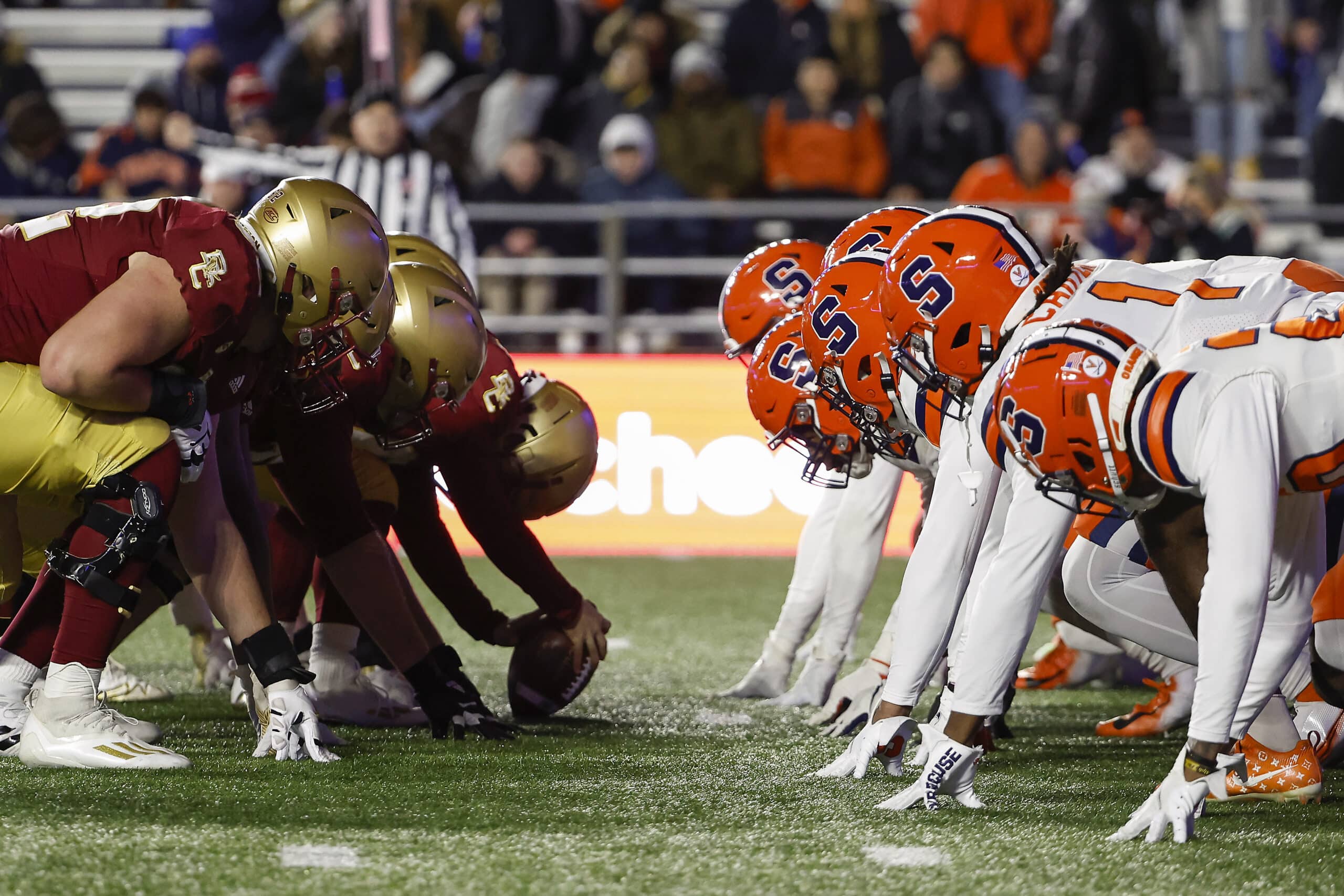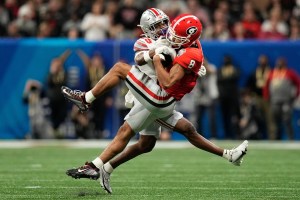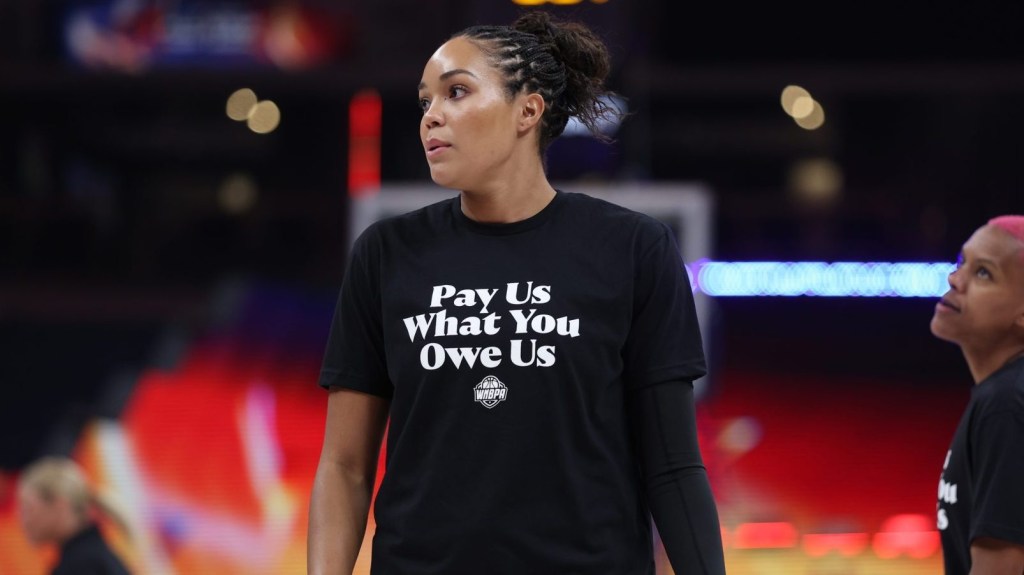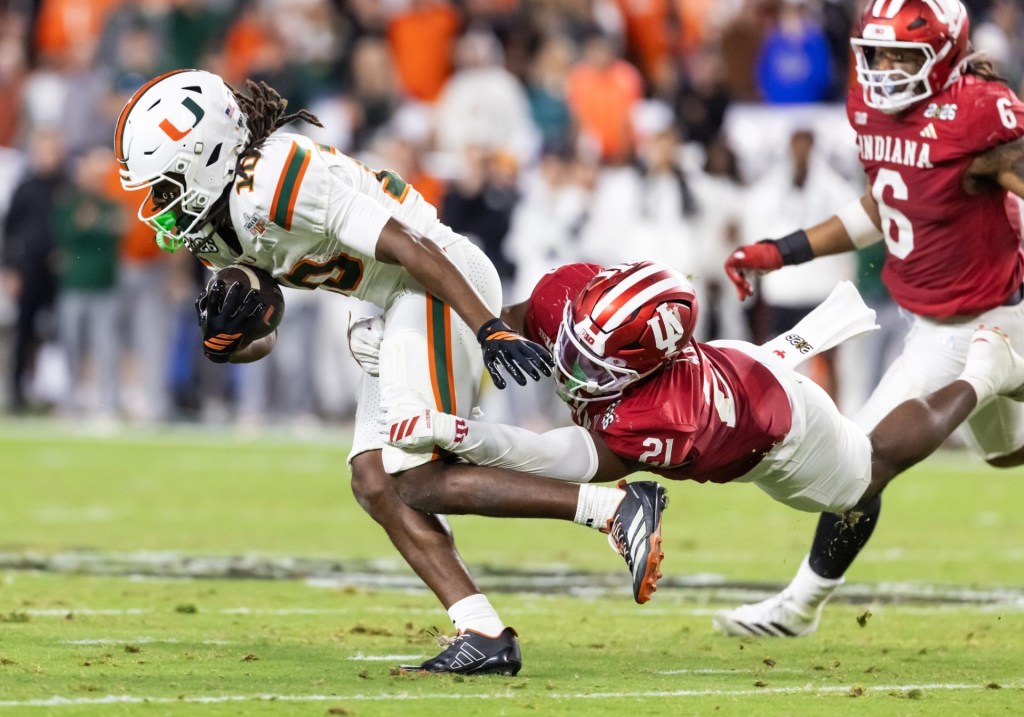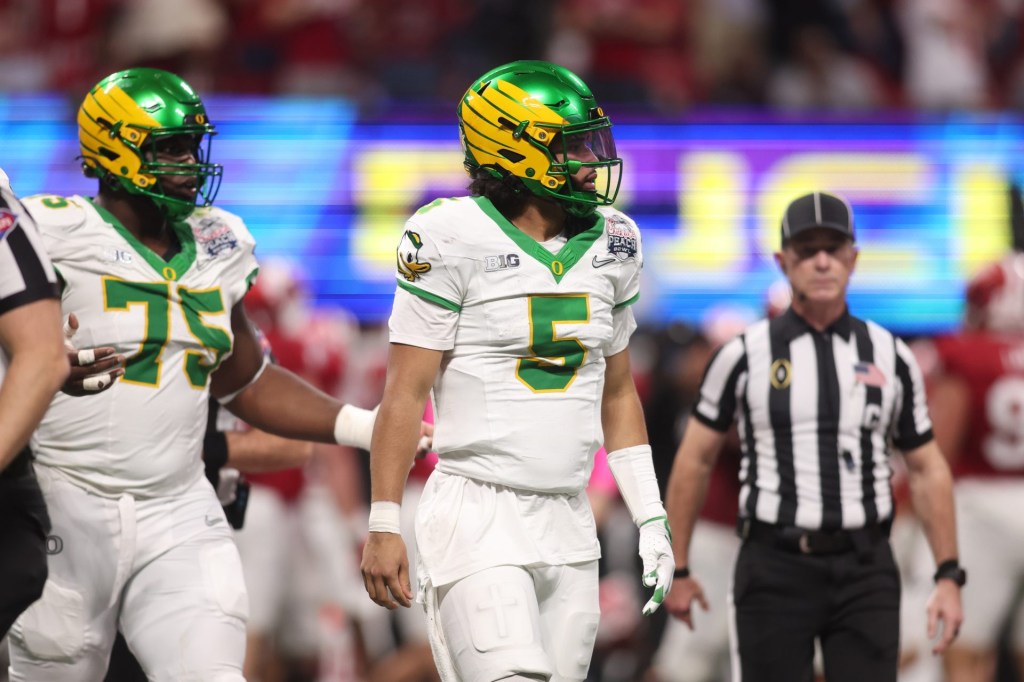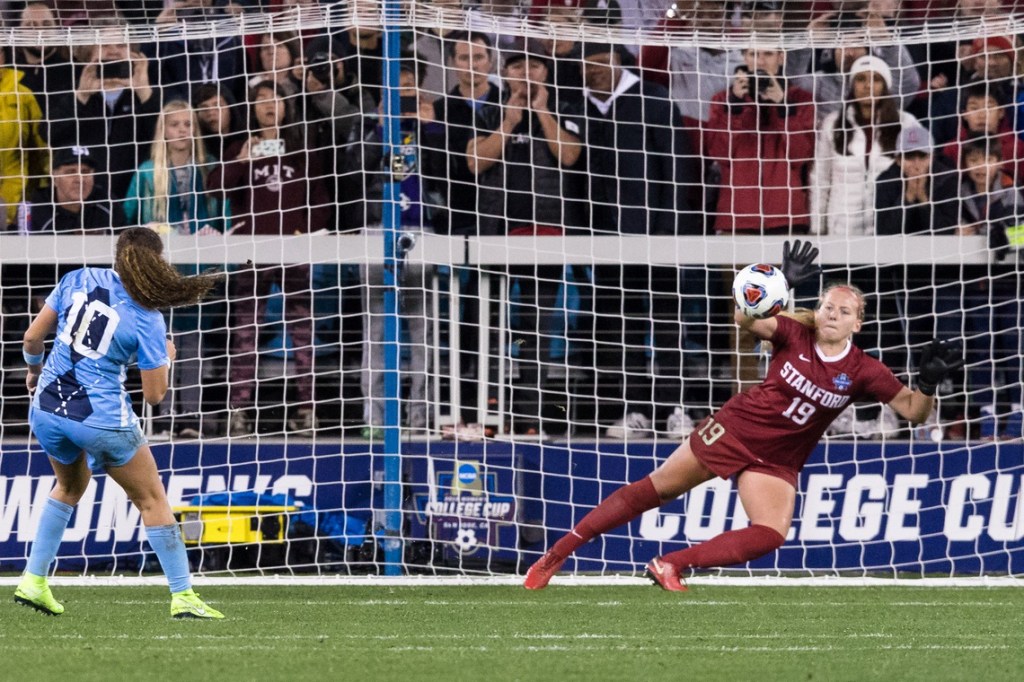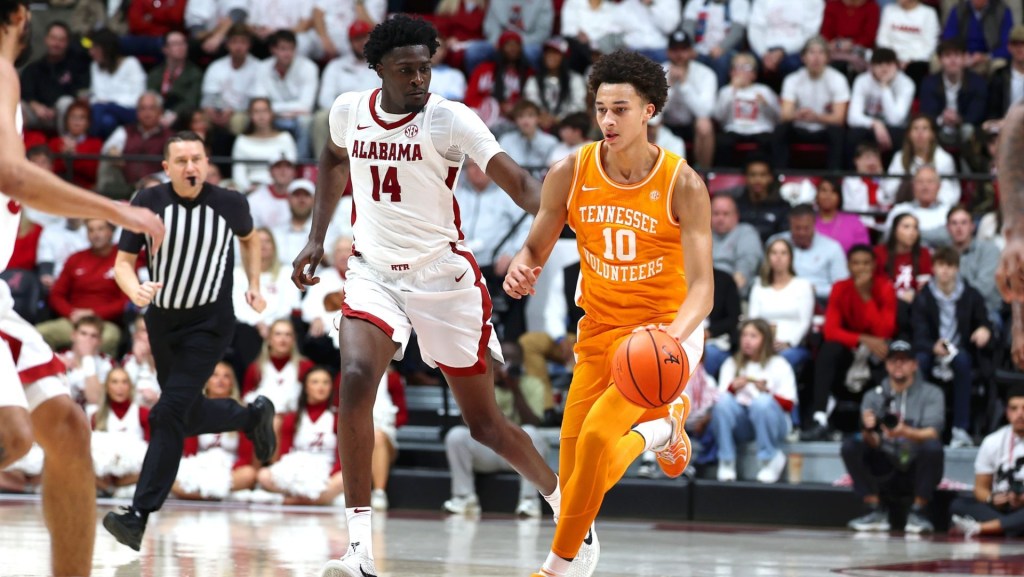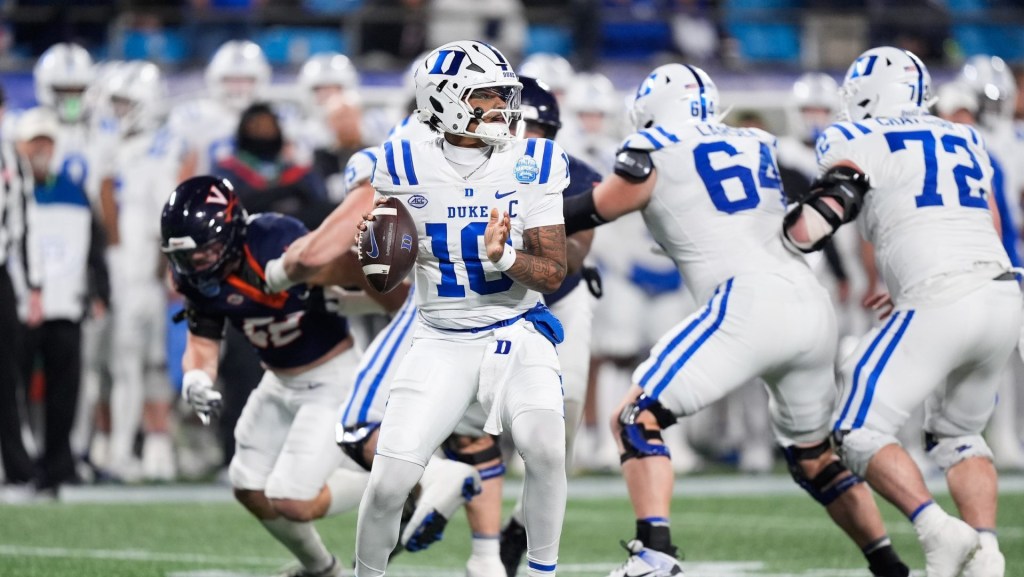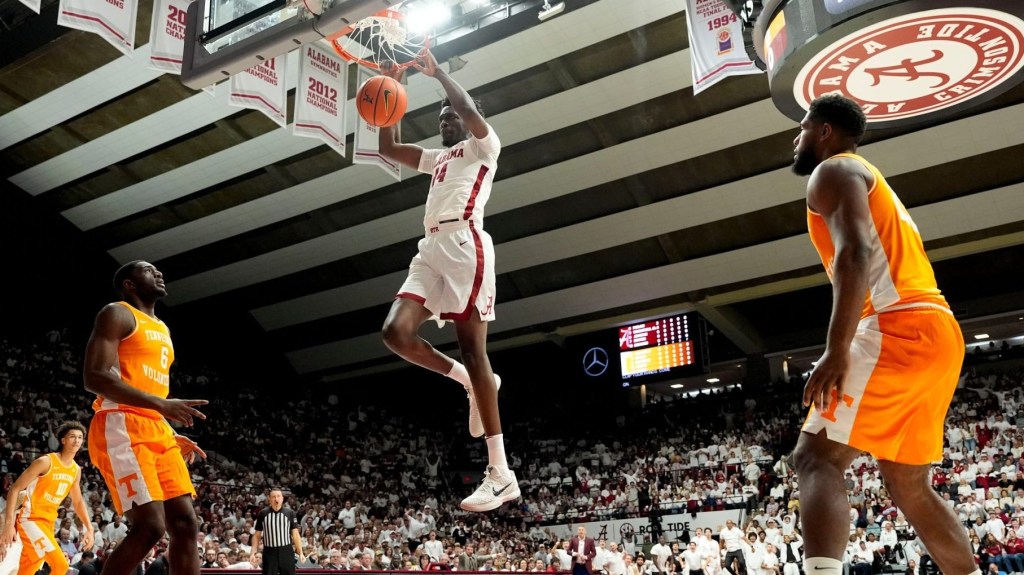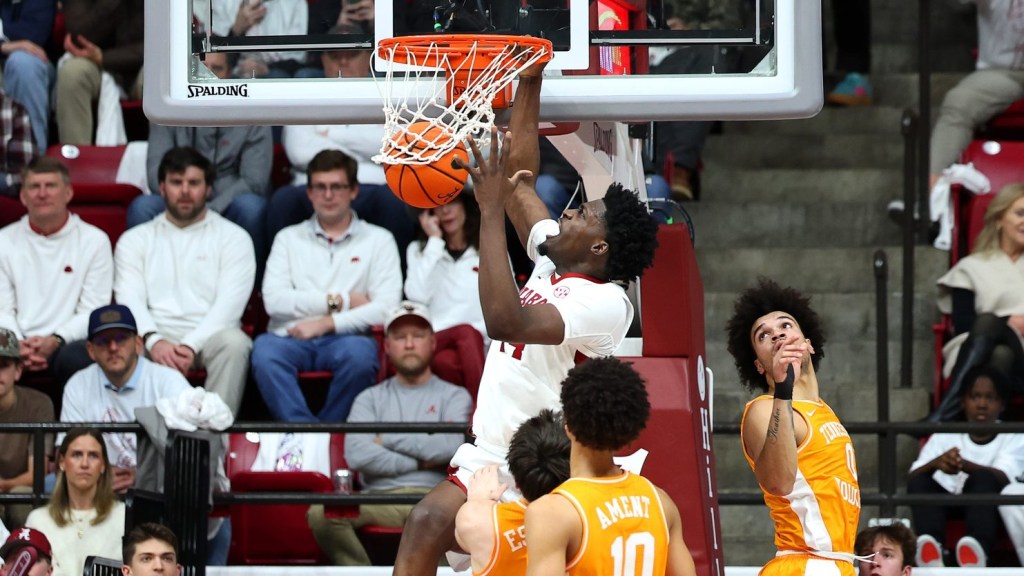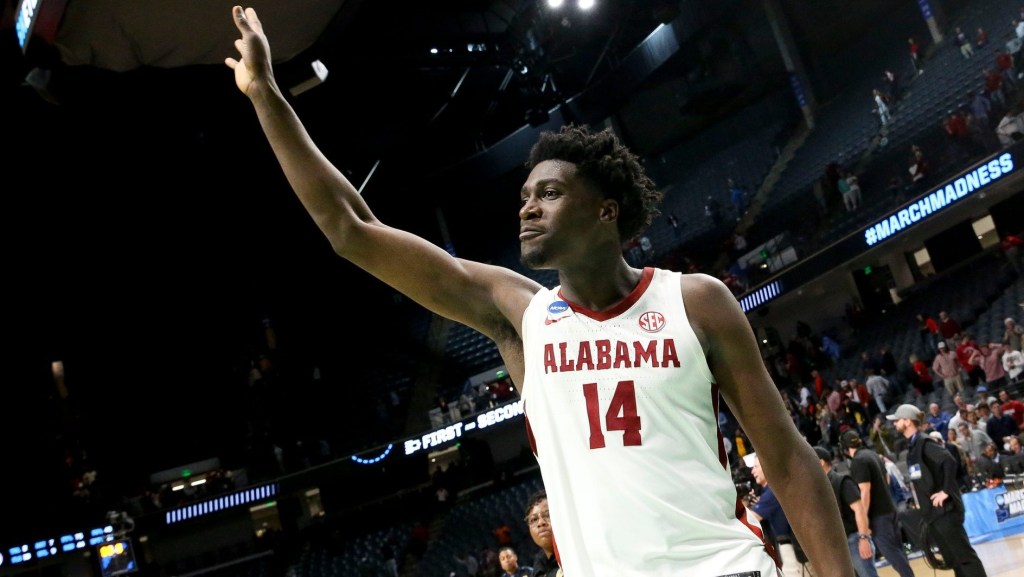The controversy surrounding athlete compensation in the EA Sports College Football game, which is set to be released in 2024, has escalated from public comments to a bonafide lawsuit.
The Brandr Group, which has deals to negotiate group licensing contracts for 54 Division I schools that would be represented in the game, is suing EA over the name, image, and likeness deals being offered to athletes.
The lawsuit was filed on Tuesday in the Northern District of California — a federal court — after being originally filed in San Mateo County, California, where EA is headquartered.
The Brandr Group is contracted by schools nationwide to facilitate group licensing agreements, using the intellectual property of schools as well as athletes’ NILs. The Brandr Group is alleging that EA is trying to “circumvent” its agreements to negotiate deals for athletes to participate in the football game.
The Brandr Group and EA had been in contact multiple times in 2021 and 2022 about EA’s plans to offer athletes NIL deals to be featured in the EA Sports College Football game, court documents obtained by Front Office Sports alleged. EA said via email that deals for athletes at The Brandr Group’s schools would be done through The Brandr Group.
But in May 2023, EA chose to work with a different company, called OneTeam Partners, to help facilitate the group licensing deals with athletes. Now, EA is offering deals with the help of OneTeam Partners that athletes can “opt into” directly — without any involvement from The Brandr Group.
The current deal being offered is reportedly $500 per athlete and no royalties (a deal that both The Brandr Group and an athlete advocate group called The College Football Players Association have said is below fair market value). Meanwhile, schools might receive revenues amounting to 10% of what the entire game brings in, The Brandr Group alleged in the lawsuit complaint.
Athletes and schools have until June 30 to opt in, the lawsuit stated.
The Brandr Group alleges that it must be able to negotiate on behalf of the athletes at schools for which it has contracts — and that EA’s decision to ask athletes to opt in directly to a deal without the involvement of The Brandr Group amounts to “tortious interference.”
EA “places TBG’s Partner Schools in the unenviable position of either breaching their contracts with TBG or potentially losing the opportunity for themselves and their athletes to participate in the game,” the lawsuit said. “EA’s tactics will also cause irreparable harm to TBG’s Client Athletes, and to every student-athlete who opts-in to their scheme for unfair compensation, because they are being deprived of the opportunity to have their own representative negotiate on their behalves for fair compensation for the use of their NIL.”
As a result, The Brandr Group is requesting that EA halt all of its negotiations with athletes and schools for which the company has contracts.
“As we have previously stated, our primary concern is advocating for student-athletes, ensuring they have a voice and are justly represented in all matters pertaining to the use of their NIL,” The Brandr Group said in a statement. “We believe that student athletes are not receiving fair market value for their NIL rights and that the contractual rights asked for may limit other NIL gaming opportunities. We have no further comment at this time.”
EA Sports has not produced a college football game in over a decade, since a federal court case called O’Bannon v. NCAA found that it was illegal for the NCAA and EA to not compensate college athletes whose NILs had been used in an EA college basketball game. No college sports video games including real players have since been made. The beginning of the NIL era allowed for EA to begin the process of creating video games again.
EA did not immediately respond to a request for comment.
FOS Senior Reporter A.J. Perez contributed to this report.
